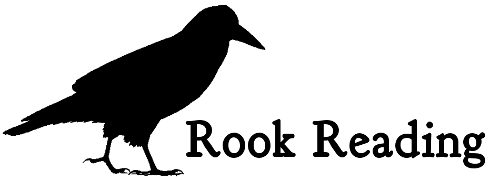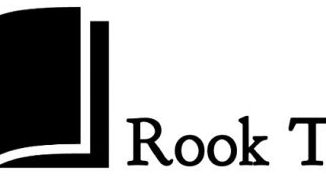
What is literature?
There is no definition, there are no boundaries that tell what makes a work literary. There is a continuous debate on what is literature, as if the term itself is the holy grail for profound written works of art. The word is controversial though some rough lines can be sketched.
Literature tends to focus on the human condition, how humans are. It (1) considers, (2) reflects on, and (3) gives us insight into life as it is lived by other people. It expresses contemporary ideas, and strives to be original. The reader is often invited, teased or harassed to think about the work itself and their own lives. You don’t study novels, you learn from them.
Why read literature?
If there were a short answer to the question ‘why read literature?’, it would be ‘to make you a stronger, flexible and profound human being’. This, however, might sound vague, so let’s get into detail. Bear in mind that the following skills and insights are not acquired instantly. Reading is not the miracle drug that transforms you after one book. It should be an intricate part of your life, which requires regular exercise, like training for stamina.
Reading makes you a mentally stronger person, and therefore more difficult to manipulate or fool around by others. It is for this reason totalitarian regimes want to ban books or burn them, like the Nazis in World War II.
There are four areas which will be affected by reading regularly: general reading skills, imagination and creativity, knowledge of the world and entertainment. There are media which offer you one or more elements mentioned below, but it is reading which combines them all.
Improving reading skills: become a skilled reader
 The most practical advantage of reading is, of course, acquiring reading skills. The more you read in any language, the faster you become in doing so. Especially when going to university it is important to be able to read fast with an (almost) complete understanding of what you have been reading. This is applicable for both your native language as well as a foreign language.
The most practical advantage of reading is, of course, acquiring reading skills. The more you read in any language, the faster you become in doing so. Especially when going to university it is important to be able to read fast with an (almost) complete understanding of what you have been reading. This is applicable for both your native language as well as a foreign language.
Speed
As reading is a skill you will be able to perform better by doing it more often. By reading a lot you will find patterns in a language, recognise word structures and be able to process of turning words into meaningful context faster.
Understanding
Sometimes you understand the words in a sentence, but you are having difficulty in turning them into something meaningful. With reading you will encounter difficult structures, enigmatic words and strange contexts which you need to visualize or comprehend. How should I read this? What should I derive from this? Therefore, it is important to read different authors with different writing styles. Shorter novels tend be more abstract, longer novels more descriptive. Mix your reading to have a taste of all kinds of writing styles.
Increasing vocabulary
“The only thing you really know is what you can put into words,” Alan Watts. The more words you know, the more you are able to express yourself. Novels offer a tremendous amount of words in context in many fields. Reading a wide variety of novels offers you a broad lexicon of a language. You should not look up every word that you do not know, because it will disturb the flow of reading. You should, however, look up recurring words or word structures.
Imagination: a bridge to creative thinking
 Reading increases your capability of imagining things. This may sound fancy and superficial, but understand that the imagination is connected to creative thinking: being able to come up with original ideas for troubles and tribulations in the present and future. Being imaginative helps in foreseeing the future for bigger and smaller issues.
Reading increases your capability of imagining things. This may sound fancy and superficial, but understand that the imagination is connected to creative thinking: being able to come up with original ideas for troubles and tribulations in the present and future. Being imaginative helps in foreseeing the future for bigger and smaller issues.
Creative thinking
It is true that movies and TV-series also offer stories that inspire the imagination. The problem with this media is that the director has already made a ton of choices in the field of the imagination. With reading, you have to come up with the backdrops, the stage props, the characters and the like. Your brain has to work hard in creating the story in your mind.
Increasing your imaginative powers, increases your creativity, to come up with new, original ideas for current problems, to make connections in your long-term memory and have a better understanding of how the world works. Like increasing your general reading skills, reading trains your brain to think imaginatively and thereby creatively, making you a versatile asset to any team.
Foreseeing
Reading a lot also helps you to know our history, understand our present and foresee the future. Novels have a connection with both fiction and the spirit of the age, that is, how people understood the world at the time of writing. They are contemporary reflections on society and reality They also show you general truths about the human condition; how people are.
Knowledge of the world: challenging your limiting factors
 Our personal experience is always limited. Personal experience is what we perceive through the senses and how we reflect on that. Everybody is an individual and as such everybody has distinctive, unique, characteristics of who they are. These characteristics can be placed in certain categories, like age, gender, (having) children, ethnicity, marital status, sexual orientation, religion, pet ownership, political preference and many more. All these categories describe details of who we, as a person, are.
Our personal experience is always limited. Personal experience is what we perceive through the senses and how we reflect on that. Everybody is an individual and as such everybody has distinctive, unique, characteristics of who they are. These characteristics can be placed in certain categories, like age, gender, (having) children, ethnicity, marital status, sexual orientation, religion, pet ownership, political preference and many more. All these categories describe details of who we, as a person, are.
As you can define who you are, you can also define who you are not. We call this the limiting factors. Being a male defines who you are, but also limits you. You are not a female. Limiting factors can also limit you in your progress in society and the job market, for example your economic situation, or your ethnicity. Literature provides you with the experience of life beyond your cultural range. It makes you see beyond your limiting factors and helps you understand those with different limiting factors.
Human condition and cultures
The human condition is how we are as a species, how we behave, think and live our lives. Every individual is unique but we are all human. Novels are (almost) always about people, about their challenges, their choices. The more you read the more people you meet. This is the same with different cultures and social backgrounds. Novels offer you a way out of your personal bubble and challenge you with different views on the world.
Conceptual Thinking
Reading a wide variety of novels offers you wide range of ideas. You won’t really study those ideas but they often stick to the mind (also because the ideas are conceptualized in the plot). The more ideas you can put in your (subconscious) long-term memory, the better you can make connections to those ideas and form new ones. To understand better is to have a broad knowledge of the world.
Getting and forming ideas and opinions
Novels challenge you to form your ideas and opinions, especially with unreliable narrators. Do you stand by the protagonist or do you oppose the ideas presented to you? Novels offer you situations to make a choice, to challenge your values and show a mirror. Do you conform with your culture merely because it has always been like this, or do have a clear opinion why you support or oppose something? Discussing novels with peers also helps to strengthen your ideas (and help you in creating sound arguments).
Entertainment
![]() Finally, novels are read because they are entertaining. This might not be the case for some of you, as you might not be avid readers (and maybe you will never be), but the more skilled you get at something, the more you appreciate it.
Finally, novels are read because they are entertaining. This might not be the case for some of you, as you might not be avid readers (and maybe you will never be), but the more skilled you get at something, the more you appreciate it.
If you read at a smooth, regular speed, comprehend your reading well, are able to unlock your imagination, be open to new ideas and cultures, appreciate the intricate use of language, and feel empowered by its ideas, you will see novels as entertainment and perhaps life fulfilling.
Just tell me what the book is about
When I talk about literature students often say, just stop playing around and tell me what the book is about. Reading is an active, personal, occupation. As a reader you have to make sense of the story and its meaning. We as readers are not passive receivers of information. Therefore, I might tell you what a novel is generally about, but what’s more important is what it means to you. A summary does not suffice. It is not about information, it is about experience.
However, the range of meanings is limited. As a reader you can add any meaning to the novel, as long as you can support that by evidence from the novel. You have to use arguments why you think the novel is about something. Novels therefore also teach us how to support our opinions in general. Novels teach us how to react to life situations and forming ideas, they are as close a lot of people will get to philosophy. Novels are fiction, but not only.
Literature therefore trains us in critical thinking (a universal academic skill). It offers us simple and complicated stories, a platform to form our own opinions on life. You shouldn’t necessarily have to agree with the main character or author (and sometimes an author challenges you to offer an offensive viewpoint!), but you should think critically about the presented situation(s). So literature has something for everybody in store, not only for the avid readers. Literature can help you in shaping who you are, or want to be, if you allow it.

This work is licensed under a
Creative Commons Attribution-NonCommercial 4.0 International License.



Be the first to comment